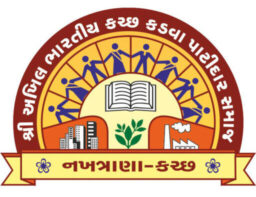The Autobiography of Karamashibhai Kanji Vasani – Virani Nani (Gadh)
Son of Kartaharta Pako Mukhi of Mandvi Kutch
Once upon a time, my family and I were followers of the Satpanth religion. I had complete faith and belief in the Panth, as my grandfather had believed in it since the time of my great-grandfather. The values and teachings of the Panth were so deeply ingrained in our family that we lived our lives according to them. The Satpanth shrine was located in our village and it was called “Jagya”. The rituals and teachings that were followed in the shrine seemed to have similarities with the Muslim religion. I remember participating in the recitation of the Muslim Dua Kalma during the puja vidhi and darshan service, as it was a part of the rituals.
Gradually, an internal turmoil took over me as I struggled to comprehend what was happening. As Hindus, we recited Dua-Kalma, a prayer typically associated with Islam. However, not all Islamic rituals were compatible with Hinduism, which left me feeling confused. I didn’t know what to do, so I stopped visiting the place of worship altogether. This upset my father, who was a regular worshipper and the Paka Kartaharta Mukhi there. He asked me why I stopped going for darshan. The villagers also taunted my father, saying that I resembled a Pako Mukhi, which made matters worse. Despite feeling tired, I had to listen to their criticism.
In response to my observation, I told my father that the person in question appeared to me as a Muslim. In turn, my father quoted a scripture stating that a brother will shun darkness and embrace enlightenment, regardless of whether they are Hindu or Muslim. (Ginan VI of Gorvani in Atharveda m Bhankhiya). Upon hearing this, I was advised that rather than seeing other Hindus converting to Islam, we Satpanthis should embrace the religion ourselves. My father became enraged and asked me if I was his child or if he was mine, prompting me to leave immediately. This incident left me with a lot of thoughts and emotions to process.
The mind found solace in reading the book “Satpanth Pirana Paul” by Narayanji Ramji Limbani, from the village of Bigi Viraniwala. It felt like reading a historical book, and after reading it thoroughly, all doubts and dilemmas in the mind were resolved. The scriptures and Vedas of Sanatan Dharma were studied carefully, and many Shlokas/Richas were memorized. This confirmed that the Pirana Satpanth is not a part of Hinduism. The father’s hard work to awaken the Kutch bitter Patidar community during a difficult time was appreciated, as he helped those who had become blind in the name of religion. The elder’s revolutionary work was remarkable, and even now, there are still many bitter Patidars who have not fully recognized or understood him, or joined the mainstream of Sanatan society.
I strongly believe that the Satpanth path, which is considered an Atharvavedic religion in Kaliyuga, is incorrect. This path is not aligned with the Hindu Sanatan Dharma. It is a disrespect to the holy scriptures and has been criticized and even defamed. The creator of this path manipulated the Vedas-Upanishads, Darshan Shastras and Mahapuranas to fit his own beliefs. By doing so, he led the Hindus astray and caused confusion. He even created a handwritten Thotha, which he claimed was the Atharvaveda according to Kali Yuga. This was a deceitful trap that caused great harm and confusion, especially among the Patidars. As a result, Syed Imamshah Bawa chose to leave the established Satpanth and embrace the Sanatan Dharma.

